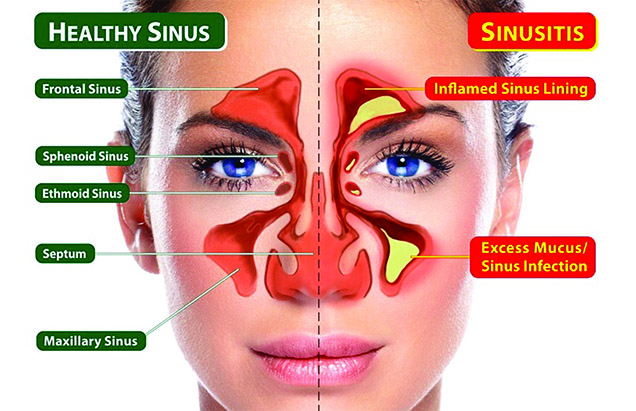How to Heal a Bitten Tongue Faster: 7 Effective Methods for Rapid Recovery in 2025

Experiencing a bitten tongue can be a painful and uncomfortable ordeal, whether it's caused by an accidental bite while eating, talking, or a seizure. Understanding how to heal a bitten tongue faster is crucial for minimizing pain and ensuring swift recovery. This article provides a comprehensive overview of effective methods, incorporating remedies and care strategies that can help you achieve rapid healing. We will explore treatments that alleviate pain, reduce inflammation, and promote recovery to restore your tongue's health smoothly.
In 2025, prioritizing tongue health should be a part of every individual's self-care routine. Whether you're dealing with a minor bite or a more significant injury, employing the right methods can make all the difference. You'll find essential tips, dietary recommendations, and natural remedies for tongue bites that contribute to a smoother and quicker healing process.
Key takeaways from this article include:
- Understanding the causes and symptoms of tongue bites.
- Effective home remedies and treatments for rapid recovery.
- Insightful tips on maintaining oral hygiene and diet after injury.
- Guidelines on when to seek professional help for severe injuries.
Understanding Tongue Bites and Their Causes
To effectively heal a bitten tongue, it's essential to understand what causes these injuries. Contrary to popular belief, tongue bites can happen to anyone at any time. They are often the result of common situations such as chewing food improperly, clenching during sleep, or even during physical activities where trauma might occur.
Recognizing Tongue Injury Symptoms
The signs of a tongue bite include sharp pain, swelling, and sometimes blood presence. Understanding these symptoms helps determine your treatment methods. Notably, tongue injuries can be classified into mild and severe, with mild injuries often involving minor cuts or bites that heal within a few days.
Prevention Strategies for Tongue Bites
Preventing tongue bites starts with awareness. For individuals prone to this issue, consider strategies such as avoiding hard foods, managing stress levels, and even wearing mouthguards during intense activities or while sleeping. These proactive measures can significantly reduce the risk of recurrent injuries.
Common Conditions Leading to Tongue Injuries
Medical conditions such as seizures and sleep disorders may increase the likelihood of tongue bites. Knowing these underlying conditions can aid in preventing future occurrences and managing associated pain or discomfort effectively.
With these foundational insights in place, we can move on to explore effective home treatments that are crucial for quick recovery from tongue bites.
Top 7 Home Remedies for Fast Recovery from Tongue Bites
When dealing with tongue bites, immediate care can drastically improve recovery speed and comfort. Below are seven effective methods you can utilize at home.
1. Saltwater Rinse for Oral Hygiene
Using a saltwater rinse is one of the simplest yet most effective ways to soothe a bitten tongue. This natural remedy helps clean the wound, reduce swelling, and promote healing. Mix one teaspoon of salt in a cup of warm water and rinse your mouth several times a day. Just remember not to swallow the solution!
2. Applying Cold Therapy
Cold therapy can significantly relieve pain and swelling associated with tongue injuries. Use ice chips or an ice pack wrapped in a cloth and gently apply it to the tongue. This method numbs the area, offering immediate pain relief. Just be cautious not to apply it too long, to avoid frostbite.
3. Staying Hydrated
Hydration plays a critical role in the healing process. Ensure you're drinking plenty of water throughout the day, which helps maintain oral health and speeds up recovery. It reduces dryness in the mouth, promoting saliva production, which is essential for healing.
4. Healing Foods to Incorporate in Your Diet
What you eat matters during recovery. Incorporate anti-inflammatory foods such as leafy greens, fatty fish, and berries into your diet. These foods promote healing and help reduce swelling. Likewise, soft foods like yogurt and mashed potatoes can prevent further irritation.
5. Utilizing Herbal Treatments
Herbs like aloe vera can provide soothing properties when applied directly to the wounded area. Aloe vera has healing and anti-inflammatory properties, making it a perfect natural remedy. Just ensure it is fresh and free of additives suitable for oral use.
6. Choosing Soothing Gels for Pain Management
Over-the-counter topical gels designed for oral wounds can be particularly beneficial. These gels create a protective barrier over the injury, reducing discomfort while promoting healing. Look for alcohol-free options that are less likely to cause irritation.
7. Avoiding Spicy and Irritating Foods
During the healing process, it’s wise to avoid spicy, hot, or acidic foods that can cause irritation and discomfort. Opting for bland, soothing foods will promote a more comfortable recovery experience.
Now that we've explored these effective remedies for rapid recovery, it's essential to understand the importance of ongoing self-care and when to consult a health professional regarding oral injuries.
Maintaining Oral Hygiene Post-Injury
Proper oral hygiene is vital in the aftermath of a tongue injury. Poor hygiene can lead to infections, prolonging the healing process and causing additional pain.
Importance of Alcohol-Free Mouthwash
Rinsing with an alcohol-free mouthwash can help maintain oral hygiene without irritating your tongue further. Antiseptic and soothing mouthwashes minimize the risk of infection while promoting healing.
Gentle Brushing Techniques to Follow
When brushing your teeth, be gentle around the injured area. Use a soft-bristled toothbrush to avoid additional irritation and discomfort. This practice helps keep your mouth clean while preventing future injuries.
Managing Pain Effectively
Listening to your body is crucial. If you experience persistent pain or swelling, consider over-the-counter pain relief options. Additionally, consulting with a healthcare professional ensures you are on the right path toward recovery.
Having outlined these critical self-care strategies, the next section will address dietary considerations that can influence the healing timeline of tongue injuries.
Dietary Adjustments for Healing Tongue Injuries
What you eat after suffering a tongue injury can significantly affect your recovery process. Choosing the right foods is essential.
1. Food Choices for Enhanced Recovery
Incorporate soft, soothing foods that are gentle on the tongue, such as boiled vegetables, smoothies, and applesauce. These foods aid healing without causing pain during consumption.
2. Exploring Anti-Inflammatory Foods
Eating anti-inflammatory foods like turmeric, ginger, and walnuts can speed up healing. These foods contain properties that help reduce inflammation and promote recovery. Make them staples in your recovery diet.
3. Avoiding Irritants
Steer clear of hard, crunchy, or spicy foods until your tongue has healed. These can aggravate the injury and cause prolonged discomfort. Prioritize soft, mildly flavored options to support healing.
Now that we've discussed dietary adjustments, let’s navigate when it’s crucial to seek professional help for a bitten tongue, ensuring proper healing.
When to See a Doctor for a Tongue Bite
While most tongue bites heal naturally, there are instances where professional medical help is necessary. Knowing when to seek help can prevent complications.
Signs of Infection to Watch For
Symptoms such as increased swelling, pus, or fever may indicate an infection. If you’re experiencing these symptoms, it's essential to consult a healthcare professional immediately. Early intervention is critical for preventing further complications.
Duration of Healing: Knowing What’s Normal
Typically, minor tongue injuries heal within 3-7 days. If your injury persists beyond this timeframe, it’s wise to seek a professional evaluation to ensure there aren't any underlying issues affecting the healing process.
Consultation with Dentists for Persistent Pain
If your pain remains severe or unresolved, it may be beneficial to consult a dentist specializing in oral injuries. They can provide advanced treatment options and ensure the integrity of your mouth's health.

Conclusion: Supporting Your Tongue's Healing Journey
In summary, healing a bitten tongue quickly is attainable with the right home remedies, care strategies, and dietary adjustments. Understanding the causes, recognizing symptoms, and knowing when to seek professional help enhances recovery chances. By following these guidelines, you can cope with tongue injuries effectively while reducing discomfort. Remember, maintaining oral hygiene and being proactive in your self-care will facilitate a smooth path to healing.
For more information on managing oral injuries and enhancing your mouth health, check out this article and explore additional tips tailored for your needs.
Prioritize your oral health, implement these remedies, and support your recovery effectively. Healing can be a smooth process with the right approach!
